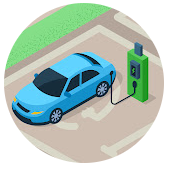
Understanding the Untapped Hispanic Market in Automotive
The automotive industry in the United States is on the brink of a major transformation, primarily driven by the untapped potential of the Hispanic market. According to Luis Delgado, a co-founder of Alur Automotive, one in four vehicles sold in the U.S. is purchased by a Hispanic consumer. Despite this significant statistic, only 11% of car dealerships actively market to this community, creating a gap that savvy dealers can exploit.
In 'DBC Podcast Episode 37 | Luis Delgado | Driving Innovation & Leadership in the Auto Industry', the conversation tackles the overlooked Hispanic market, highlighting the potential impact on the automotive sector.
Building Bridges, Not Just Sales
Delgado emphasizes the importance of relationships in automotive sales, particularly within Hispanic communities. Much like how one would feel when visiting a foreign country without speaking the local language, many Hispanics feel intimidated by traditional auto dealerships. They often drive hours to find a dealer who understands their language and culture. Establishing trust is crucial in this scenario. By employing staff who can speak Spanish and creating tailored advertising campaigns—simple measures that can have a profound impact—dealers can significantly enhance customer engagement.
The Importance of Cultural Relevance
Cultural nuances matter immensely in effective marketing. Delgado points out that simply translating English content into Spanish isn’t enough; businesses need to consider dialects and local customs. This cultural relevance not only improves communication but also builds a stronger connection with customers. If they feel represented and understood, they're far more likely to do business with you and recommend friends and family.
A Call for Change
The barriers go beyond marketing. Legally, car dealerships are required to provide critical documentation in Spanish, such as purchase agreements. Yet, many are oblivious to these requirements, effectively alienating a significant customer base. Delgado urges dealers to recognize the socioeconomic challenges faced by this community, emphasizing that many are first-time buyers unfamiliar with the traditional car buying process. This lack of understanding opens up various avenues for exploitation within the market.
The Power of Word-of-Mouth
A key aspect of Hispanic consumer behavior is loyalty. Once a trust-filled relationship is established, the likelihood of referrals skyrockets—making excellent customer service a pivotal priority for dealerships. As Delgado noted, someone in this community won’t just drive for miles to buy a car; they will also send their family and friends to the same dealership. This creates a snowball effect that can lead to exponential growth for those willing to invest in understanding their Hispanic clients.
Future Trends and Growth Potential
According to market insights, the buying power of Hispanic communities is projected to reach two trillion dollars. As they gain financial literacy and a better understanding of credit and financing options, this demographic will become increasingly integral to the auto industry. The question remains: will dealerships invest the time and resources to meet them where they are?
By leveraging cultural understanding and establishing respectful, trust-based relationships, automobile dealers can tap into an extraordinary growth opportunity.
Ultimately, automotive businesses must recognize that speaking the language of their customers goes beyond mere translation. It demands a genuine commitment to understanding cultural contexts and emotional needs—elements that can differentiate a thriving dealership from one in decline.
 Add Row
Add Row  Add
Add 




Write A Comment